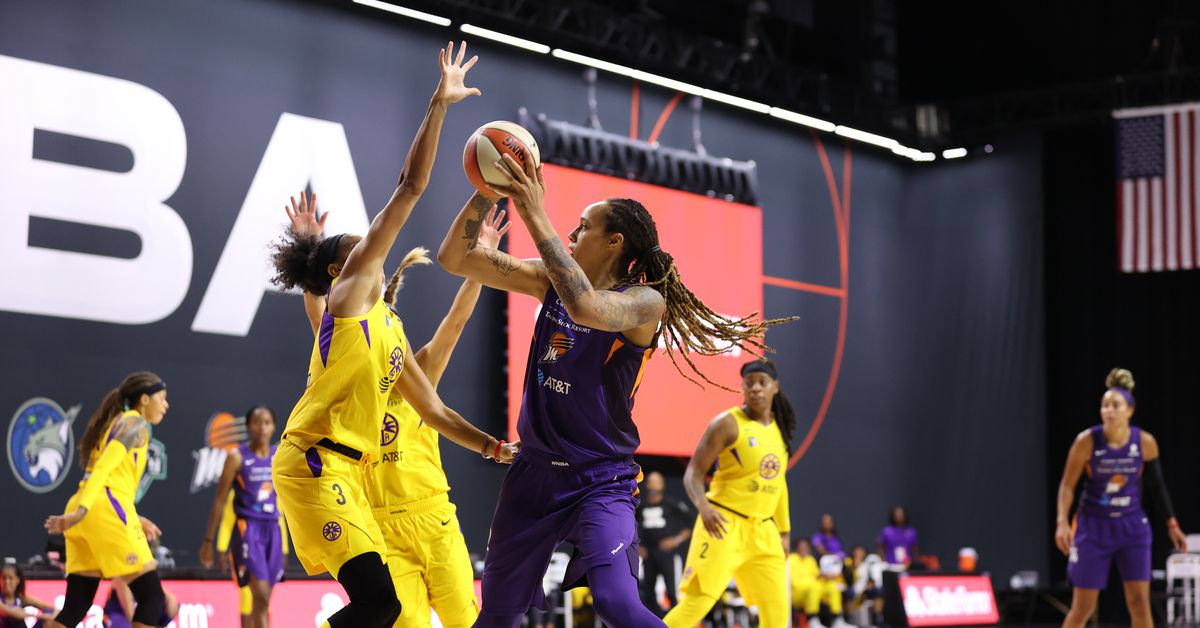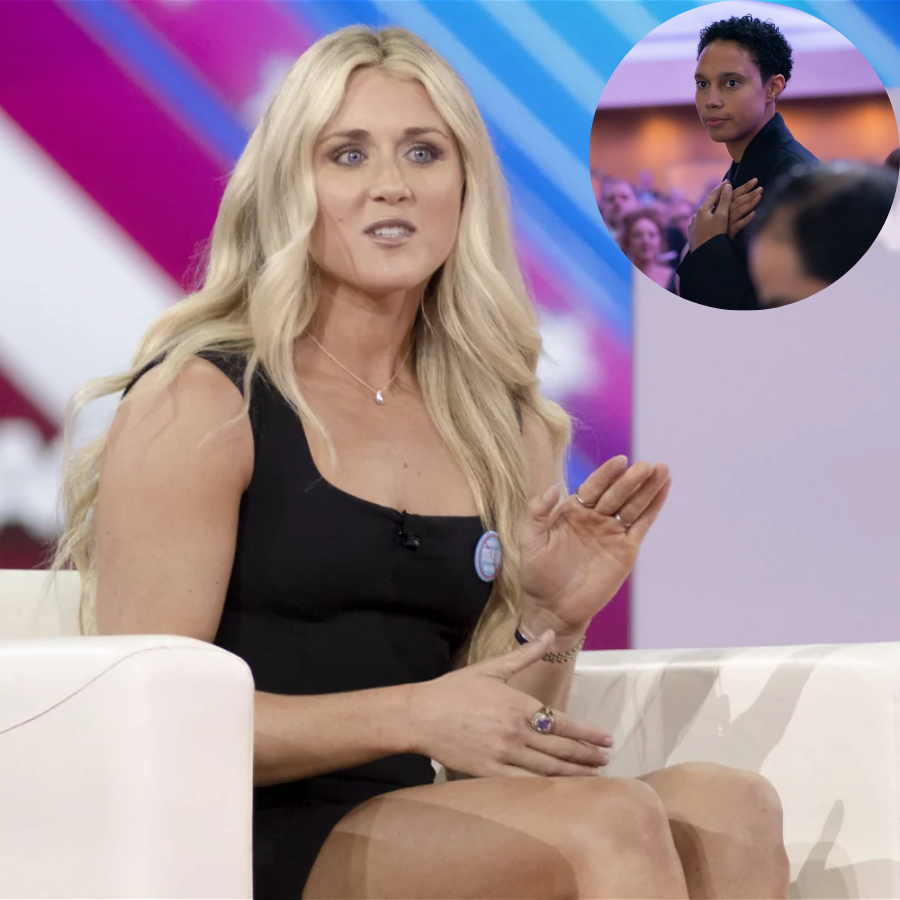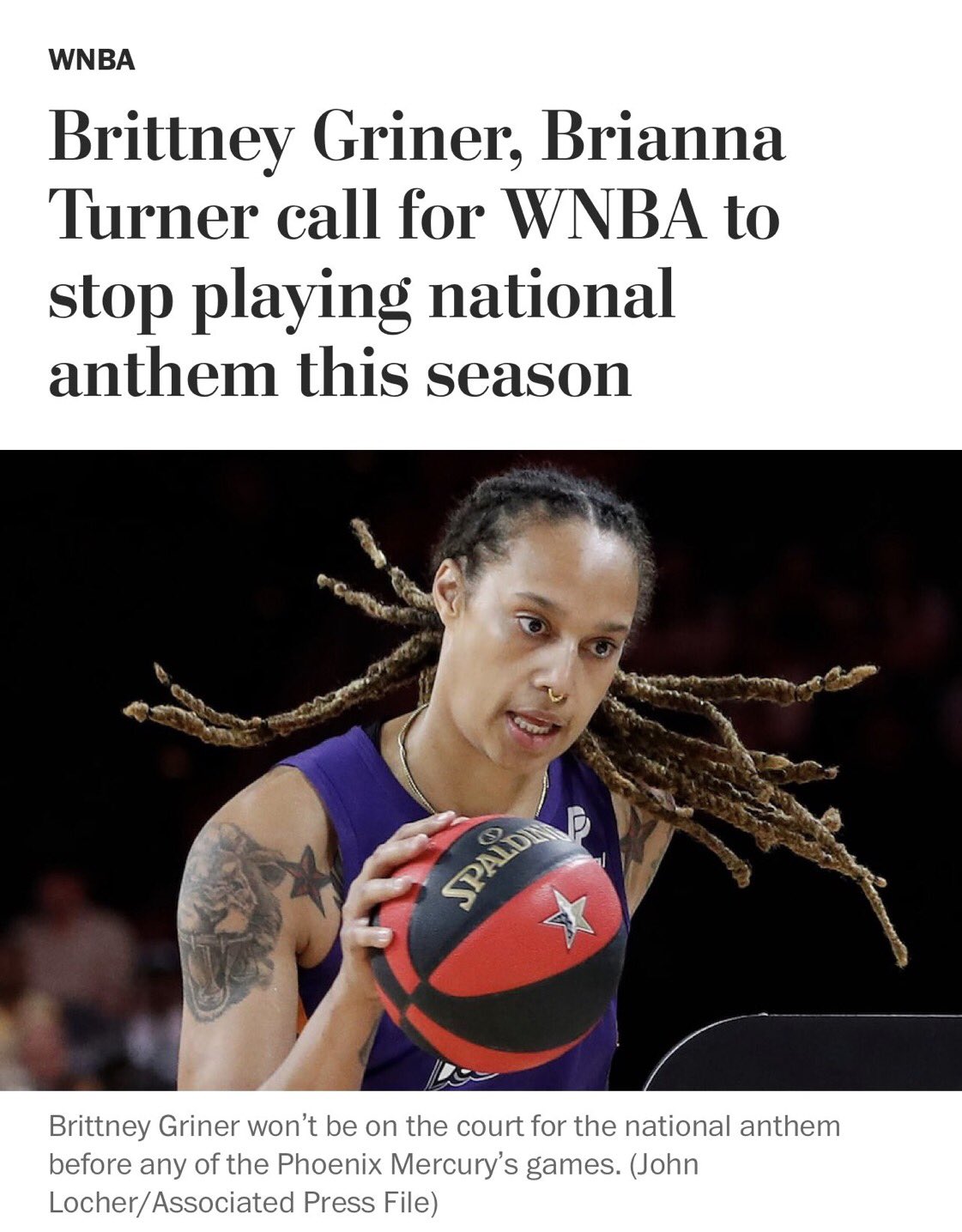Brittney Griner kneeling for the national anthem has been one of the most talked-about moments in sports and social justice discussions. The act of kneeling during the anthem is a powerful statement that resonates deeply with conversations around racial inequality, human rights, and systemic injustice. As a prominent figure in the WNBA and an advocate for social change, Brittney Griner's decision to kneel has sparked widespread reactions, discussions, and debates. This article aims to provide an in-depth exploration of this pivotal moment, its context, and its implications.
Understanding why Brittney Griner chose to kneel during the national anthem requires examining her background, motivations, and the broader social landscape. In a world where athletes increasingly use their platforms to highlight social issues, Griner's actions align with a growing movement of athletes advocating for equality and justice. Her gesture was not just a personal decision but also a reflection of the challenges faced by marginalized communities globally.
Join us as we delve into the details of Brittney Griner's life, her career, and her advocacy work. Through this article, we will explore the significance of her actions, the reactions they provoked, and the lasting impact of her stance. By the end of this piece, you will have a comprehensive understanding of why Brittney Griner's decision to kneel is more than just a gesture—it is a call to action.
Read also:Lotts Pharmacy Selmer Tennessee Your Trusted Local Pharmacy
Table of Contents
- Brittney Griner's Biography
- The Background of Kneeling for the National Anthem
- Griner's Motivation Behind Kneeling
- Public and Media Reactions
- The Impact on Social Justice Movements
- Legal and Institutional Implications
- The Role of Sports in Social Advocacy
- The Future of Athlete Activism
- Key Statistics and Data
- Conclusion
Brittney Griner's Biography
Before diving into the specifics of Brittney Griner kneeling for the national anthem, it is essential to understand who she is as a person and an athlete. Brittney Griner, born on October 18, 1990, in Houston, Texas, is one of the most celebrated figures in women's basketball history. Known for her towering presence and exceptional skills on the court, Griner has made a significant impact both in sports and beyond.
Early Life and Career
Griner's journey in basketball began at a young age, where she quickly established herself as a prodigy. Her high school career was marked by numerous accolades, including being named the Naismith Prep Player of the Year. Her college career at Baylor University further solidified her status as a dominant force in the game, culminating in two national championships.
Professional Achievements
After being drafted first overall by the Phoenix Mercury in 2013, Griner's professional career skyrocketed. She has earned multiple WNBA All-Star selections, MVP awards, and championships. Off the court, Griner is a vocal advocate for LGBTQ+ rights, women's empowerment, and social justice.
| Full Name | Brittney Yeshua Griner |
|---|---|
| Date of Birth | October 18, 1990 |
| Place of Birth | Houston, Texas, USA |
| Height | 6 ft 9 in (206 cm) |
| Position | Center/Forward |
| Team | Phoenix Mercury (WNBA) |
The Background of Kneeling for the National Anthem
The act of kneeling during the national anthem gained prominence when former NFL quarterback Colin Kaepernick first took a knee in 2016 to protest racial injustice and police brutality. Since then, athletes across various sports have adopted this gesture as a form of peaceful protest. Brittney Griner's decision to kneel aligns with this tradition, highlighting ongoing issues that demand attention and action.
Origins of the Protest
Kaepernick's initial protest was met with mixed reactions, sparking debates about patriotism, freedom of speech, and systemic racism. Despite the controversy, his actions inspired countless others to join the movement, making it a global symbol of resistance against inequality.
Griner's Motivation Behind Kneeling
Brittney Griner's decision to kneel for the national anthem was not impulsive but rather a deliberate act rooted in her commitment to social justice. As someone who has experienced discrimination firsthand, Griner understands the importance of using her platform to amplify marginalized voices.
Read also:The Hill Buffet A Gourmet Paradise For Food Enthusiasts
Key Reasons for Her Stance
- To bring attention to racial injustice and police brutality.
- To advocate for equality and human rights.
- To honor those who have suffered from systemic oppression.
Public and Media Reactions
Griner's act of kneeling sparked a wide range of reactions, reflecting the polarized nature of the issue. While many praised her courage and commitment to social causes, others criticized her for what they perceived as disrespecting the flag and national anthem.
Supportive Voices
Supporters of Griner's stance argue that her actions are a necessary reminder of the work still needed to achieve true equality. Celebrities, activists, and fellow athletes have rallied behind her, emphasizing the importance of free expression and advocacy.
Critical Perspectives
On the other hand, critics have questioned whether sports events are the appropriate venue for political statements. Some have also raised concerns about the potential consequences for athletes who take such bold stances.
The Impact on Social Justice Movements
Brittney Griner kneeling for the national anthem has had a profound impact on social justice movements. Her visibility as a high-profile athlete amplifies the message of her protest, inspiring others to engage in meaningful dialogue and action.
Empowering Marginalized Communities
By standing up—or kneeling down—for what she believes in, Griner empowers marginalized communities to demand change and justice. Her actions serve as a catalyst for broader discussions about race, gender, and equality.
Legal and Institutional Implications
The act of kneeling during the national anthem raises important questions about the legal and institutional frameworks surrounding free speech and protest. While athletes enjoy certain protections under the law, their actions can also lead to repercussions from governing bodies and sponsors.
WNBA's Stance on Protest
The WNBA has been supportive of its players' rights to express themselves, recognizing the importance of athletes using their platforms for social good. However, the league must balance these rights with maintaining a positive public image.
The Role of Sports in Social Advocacy
Sports have long been a powerful platform for social advocacy, with athletes leveraging their visibility to drive change. From Muhammad Ali to Colin Kaepernick, history is filled with examples of athletes who have used their voices to challenge the status quo.
Why Athletes Are Effective Advocates
Athletes possess unique influence due to their widespread recognition and access to media. Their ability to connect with diverse audiences makes them ideal advocates for social causes, capable of sparking conversations that transcend sports.
The Future of Athlete Activism
As society continues to grapple with issues of inequality and injustice, the role of athlete activism is likely to grow. Brittney Griner's kneeling for the national anthem is just one example of how athletes are increasingly taking a stand on critical issues. This trend highlights the evolving relationship between sports and social responsibility.
Trends in Athlete Advocacy
- More athletes using their platforms for social justice.
- Growing support from leagues and organizations for player activism.
- Increased focus on intersectional issues such as race, gender, and sexuality.
Key Statistics and Data
Data supports the significance of athlete activism in driving social change. For instance, surveys indicate that a majority of Americans support athletes speaking out on social issues. Additionally, movements like #BlackLivesMatter have seen increased engagement following high-profile protests by athletes.
Relevant Statistics
- 71% of Americans believe athletes should have the right to protest during the national anthem.
- 85% of respondents agree that athletes can positively influence social issues.
- 60% of fans report being more engaged with sports when athletes discuss social causes.
Conclusion
Brittney Griner kneeling for the national anthem represents a powerful moment in the intersection of sports and social justice. Her actions have sparked important conversations about inequality, free speech, and the role of athletes in advocating for change. By examining her motivations, the reactions her protest provoked, and the broader implications of her stance, we gain a deeper understanding of the impact athletes can have on society.
We invite you to continue the conversation by sharing your thoughts in the comments below or exploring other articles on our site. Together, we can work towards a more just and equitable world, inspired by the courage and conviction of individuals like Brittney Griner.


